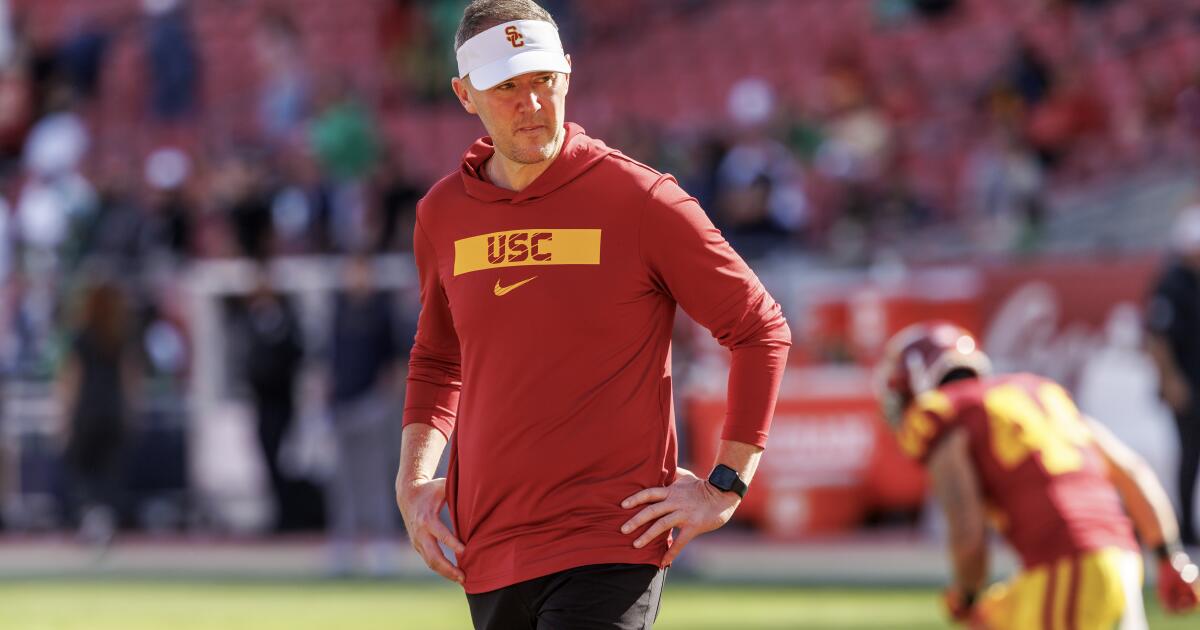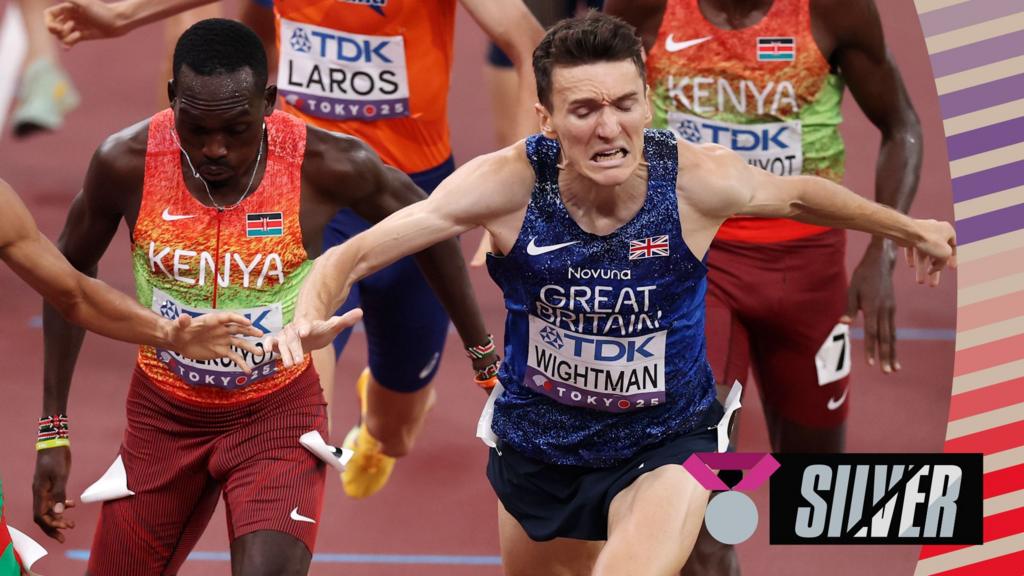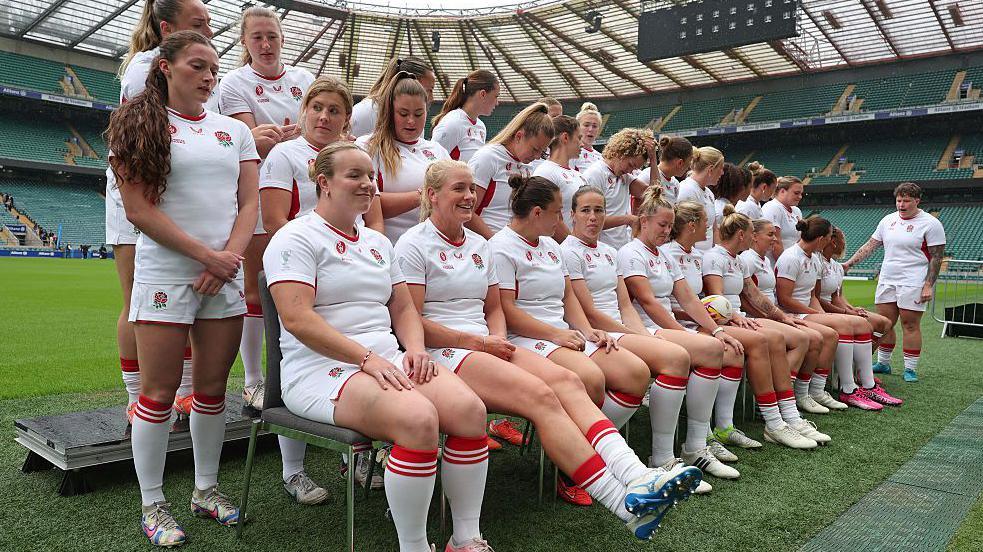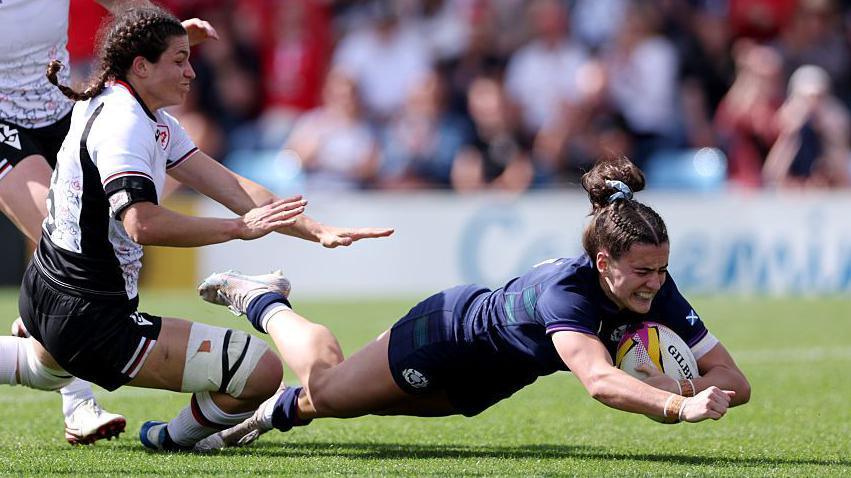
LAS VEGAS — After shots were fired all summer over USC’s hand in the future of its rivalry with Notre Dame, coach Lincoln Riley reiterated during Big Ten media day on Thursday that he “absolutely” wants to maintain the historic matchup.
“Do I want to play the game? Hell, yeah, I want to play the game,” Riley said. “It’s one of the reasons I came here. But also, my allegiance and my loyalty is not to Notre Dame and not to anyone else. I’m the head coach of USC. I’m going to back USC. And I’m going to do everything in my power to make USC as good as it can be. I’m not going to let anything stand in between that.”
Riley has taken heat about the rivalry’s future since last year’s Big Ten media day, when he first shared concerns about how scheduling a marquee nonconference team could impact the Trojans’ playoff hopes.
Notre Dame has since used Riley’s comments as public leverage, putting the responsibility for the rivalry’s future on USC.
“It’s pretty black and white for me. You want my opinion? I want to play them every single year,” Notre Dame coach Marcus Freeman said. “When? I don’t care. I don’t care when we play them. Start of the season, middle of the season, end of the season — I don’t care. I want to play USC every year because it’s great for college football.”
The sticking point in those negotiations, Riley confirmed, remains the uncertainty surrounding the College Football Playoff format. All week in Las Vegas, Big Ten coaches have voiced their support for a playoff model that would give the conference four automatic qualifiers, with play-in games to determine which of the Big Ten’s top six teams would get those spots.
Riley added Thursday that there are “a million reasons” why the conference’s preferred format should be adopted, but maintaining historic rivalries like USC-Notre Dame “might be the most important.”
“We give every reason for college football to preserve nonconference games that mean a lot to the history of the game, the fan bases and the former players and everyone,” Riley said.
But that format would also take nonconference scheduling almost completely out of the equation when it came to determining who deserves to be in the playoff.
The Big Ten and the Southeastern Conference appeared to be in lockstep on calling for four automatic qualifiers earlier this summer. But the SEC has since championed a different format, leaving the Big Ten and its coaches to defend their preferred format alone.
The stalemate between the two power conferences could mean no changes are made to the playoff format for the foreseeable future. Similarly, USC and Notre Dame appear no closer to hashing out an agreement to continue their series, the last matchup of which is currently scheduled for this fall. Both, Riley said, are coming from “radically different situations,” with USC bound to the Big Ten and Notre Dame untethered by a conference. The Trojans want a short-term agreement that allows for flexibility with any future playoff format. The Irish are looking for a long-term deal.
Still, Riley said he was “really hopeful” that USC and Notre Dame could come to an understanding.
Why Vegas?
Normally, the Big Ten holds its media days inside Indianapolis’ Lucas Oil Stadium, and the three-day event certainly could have carried momentum over from the WNBA’s All-Star weekend.
But the venue was booked for the week. So, rather than return to another old home, Chicago, the 18-team conference chose Las Vegas, a city where it does not have an actual team but that is closer to some of its newer programs: USC, UCLA, Oregon and Washington.
“I think, obviously, we are a conference that goes coast to coast, so having some presence closer to our West Coast members is not a bad thing,” commissioner Tony Petitti said. “It started with logistics, to be really candid.”
The Associated Press contributed to this report.



